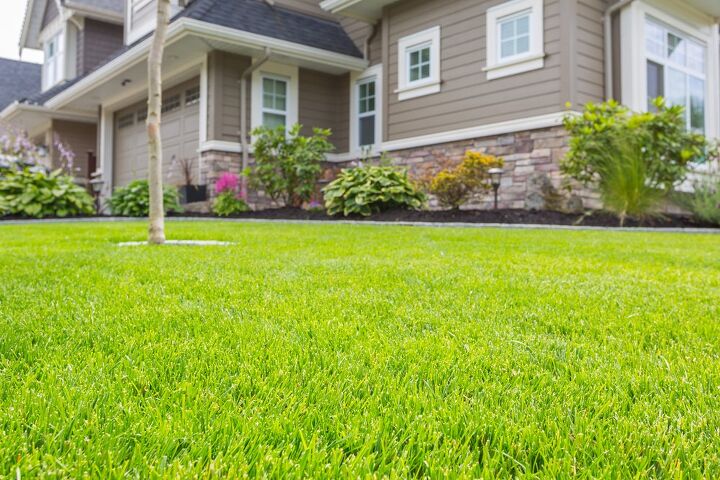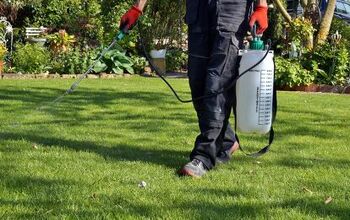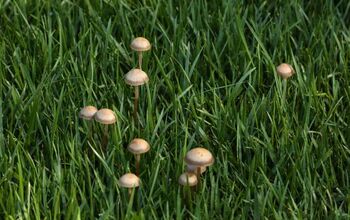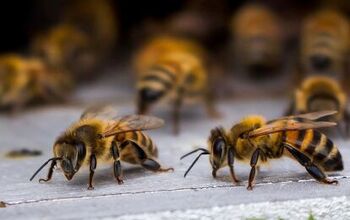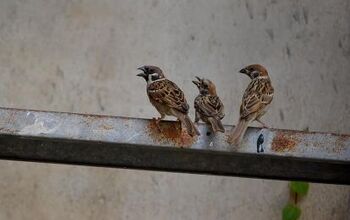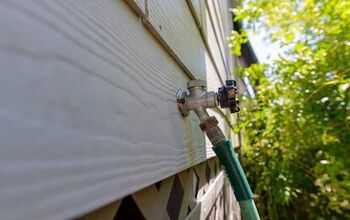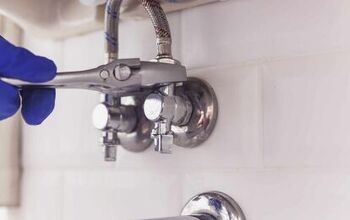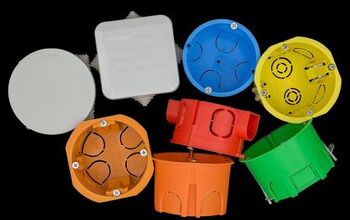How To Get Whipworms Out Of Your Yard

Being a pet owner means that you will have to keep an eye out for threats to your furry friend. Sometimes, these threats are other animals or eating the wrong thing. Other times, it’s something simpler, like whipworms. If you want to keep your dog or cat worm-free, then you need to keep an eye out for whipworms that might be in your yard.
If you have whipworms in your yard, the best way to handle them is to get rid of the top layer of soil in your yard, add diatomaceous earth to the layer, and regularly spread diatomaceous earth on top of the soil to prevent them from coming back. If you can’t remove the layer, tilling the soil and adding strong chemicals as agricultural lime can work.
Whipworm infestations can quickly grow out of control and can pose a threat to your pet’s health. In rare cases, they can also infect children. If you want to make sure your home is safe for your little ones (and furry buddies), you need to get this infestation under control. This guide will teach you everything you need to know.
Do You Need Landscaping Services?
Get free, zero-commitment quotes from pro contractors near you.

What Are Whipworms?
Whipworms are parasitic worms that live in the digestive tracts of dogs and foxes. When an infected dog or fox defecates on your property, their feces will contain whipworm eggs. Naturally, this isn’t an issue, but if dogs come into contact with the eggs and swallow them, they can get a pretty bad infection.
Adult whipworms can live in soil, increasing the chance of a dog getting infected through eggs. These eggs can stay unhatched in the ground for as long as five years. If they hatch inside a dog, they can become adult whipworms that lay eggs themselves. This can cause the whipworm infestation to worsen in your yard with every dropping your dog has.
How Bad Are Whipworms?
For most humans, whipworms aren’t going to be that big an issue. For dogs, whipworms can cause bloody diarrhea, sudden weight loss, lethargy, as well as bacterial infections. Whipworm infections can become lethal if left untreated. Getting deworming medication is a must if you want to keep your dog healthy and happy.
How Do You Treat A Case Of Whipworms?
If your dog has worms, they will need to get the right medication to kill the worms that are inside them. This will be prescribed to you by a vet in most areas. You will need to administer the medicine more than once since it takes three months for whipworms to gestate and hatch.
How To Get Rid Of Whipworms In Your Yard
If your dog recently got a case of worms, heading to the vet isn’t the only thing you should do. You will need to treat your yard for whipworms in order to ensure that his infection won’t come back. Here’s how to do it, using both the ideal and alternative options.
Ideal
This is not always doable, especially if your yard is very large. However, this is one way to ensure that your yard’s soil will be whipworm free sooner rather than later. This also remains the advisable method if your dog has repeated infections or if you have a severe whipworm problem.
- Remove the top six inches of soil. Sadly, if your worm problem is out of control, soil replacement is usually the best way to go. Replace the soil and grass with clean soil and a new flat of the lawn.
- Spray down any porous surfaces with bleach. This includes patios, stone surfaces, driveways, and anything that could potentially harbor whipworm eggs.
- Sprinkle diatomaceous earth on the lawn once a month, and pick up dog poop as soon as it happens. This reduces the chance of getting whipworms again. If you are very concerned about whipworms coming up again, consider adding agricultural lime to your mix.
Alternative #1
Let’s say that the idea of making yourself remove the first six inches of your lawn makes you cringe. Or, maybe it’s just a little too expensive. Here’s how to make the most of your alternative.
- Till your soil with agricultural lime. You will need strong chemicals to kill off the whipworms and their eggs. Agricultural lime works best, but you might be able to get some alternatives at the hardware store, too.
- Spray down porous surfaces with bleach. Whipworms get killed by bleach and by desiccants.
- Maintain your lawn. This includes a monthly diatomaceous earth spread as well as picking up dog poop. After all, lawn maintenance is the only way to have a serious shot at preventing another whipworm case.
Alternative #2
Lime and diatomaceous earth can only work if they’re dry. If you live in a wet climate or have earth known for being muddy, you may need to create a barrier between the ground and your dog. This can be done by sprinkling a layer of gravel over the earth or by paving the area that your dog uses. Obviously, this isn’t something that everyone is going to be okay doing. However, it will keep your dog safe and will be a permanent solution to your problem.
How To Prevent Whipworms In Your Yard
When it comes to whipworms and other pests, an ounce of prevention will always be worth a pound of cure. Believe it or not, keeping whipworms out of your yard is reasonably easy in many situations. These tips below can help you make sure these pests don’t become a significant part of your daily struggles.
- Clean up waste as soon as possible. The longer you leave dog or fox droppings around, the more likely it will attract pests.
- Spread diatomaceous earth on your lawn once a month, even if you don’t think you have whipworms. This is the easiest way to kill the problem before it can take root.
- Fence in your yard. Canine whipworms only affect dogs and foxes. So, the easiest way to avoid getting your dog infected is to bar other animals from entering it and leaving their mess on your grass. A tall, well-built fence keeps foxes and other dogs from easily entering (and potentially infecting) your yard.
Can Humans Contract Whipworms?
While whipworms typically don’t pose a threat to humans, humans can contract them regardless. If this happens, this is something that needs to be taken care of right away. One way humans may contract them is by ingesting soil or water that has been contaminated with them.
So, for instance, if you’re gardening, and some whipworms have been carried to that area, you can contract them. You would have to touch the contaminated soil, and then touch your mouth, or inside of your mouth. This is why it’s always a good idea to wash your hands after gardening.
Symptoms Of A Whipworm Infection
If you’re worried you may have a whipworm infection, there are several signs to watch for, including:
- Painful or frequent bowel movements
- Abdominal pain
- Nausea or vomiting
- Headaches
- Unexpected weight loss
- Loss of control over bowel function
- Other gastrointestinal issues coupled with any of these
However, children are more likely to get a whipworm infection than adults. So it’s essential to watch for these signs in little kids, especially if they love to play in the dirt.
Is It Serious If A Human Is Infected?
Usually, a whipworm infection can be taken care of right away with a round of anti-parasitic medications. Usually, you would take them for 1 to 3 days. It’s the same sort of de-worming medicine you give to animals. It stops the worms from being able to move or cling to your intestines, and it helps them to pass through.
however, if you don’t seek immediate help, there are severe and extreme complications that can come from a whipworm infection, including:
- Severe infections in your colon and appendix
- Delayed growth and cognitive function in children
- Anemia
- Rectal prolapse
If someone experienced any of these problems, you might need blood transfusions or surgery to correct the issue. There have been cases also where individuals have had to have their colon removed. However, this is extremely rare. By seeking immediate help, you can bypass the complications. Just make sure if you have to clean up a whipworm problem, you take the necessary precautions in doing so.
Do You Need Landscaping Services?
Get free, zero-commitment quotes from pro contractors near you.

Our Final Take
Most homeowners who don’t have dogs aren’t going to notice (or care) about the state of whipworms in their yard. However, if you own a dog, you are probably already aware of the damage these parasites can do to an otherwise healthy dog.
That’s why pet parents need to make a proactive effort to prevent whipworms from ever becoming a recurring problem. In most cases, heavily tilling the soil and adding lime is more than enough to kill off the majority of whipworm eggs that can try to make a home in your lawn.
To ensure that all surfaces remain egg-free, you will need to take precautions by focusing on keeping your lawn sanitary and picking up animal remains. Once you’ve treated your yard, a regular treatment featuring diatomaceous earth will help ensure that the results you see stay intact.

Ossiana Tepfenhart is an expert writer, focusing on interior design and general home tips. Writing is her life, and it's what she does best. Her interests include art and real estate investments.
More by Ossiana Tepfenhart



